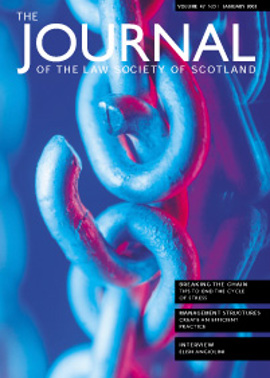Exhaustion of trade marks
The ruling dealt with three separate cases brought by trade mark holders against parallel importers selling goods in the UK which are covered by their trade marks. In the first case, Zino Davidoff challenged the right of a company to import into the EU and sell in the UK, quantities of two of its trade mark toiletries, “Cool Water” and “Davidoff Cool Water”, the products having been, in this case, originally put onto the market in Singapore, either by Davidoff or with its consent. In the other two cases, Levi Strauss sought to protect its trade mark Levi 501 jeans from being sold by Tesco and Costco in the UK, the jeans having been obtained from countries outwith the European Economic Area (“EEA”) and brought into the UK for sale.
In all of the cases, the trade mark holders sought to rely on EU Directive 89/104 dealing with the law on trade marks and, in particular, Article 5 which details the rights conferred by a trade mark and Article 7 on the exhaustion of those rights. Article 5 confers exclusive rights on the holder of a registered trade mark and allows, amongst other things, the prohibition of a third party importing or exporting goods bearing the trade mark sign without the trade mark holder’s consent. Article 7, however, limits the trade mark owner’s ability to prohibit the trade mark’s use where goods have been put on the market in the European Economic Area under that trade mark by the proprietor or with his consent. The Directive’s provisions were implemented in the UK by the Trade Marks Act 1994.
In all three cases, the importers argued that they were entitled to sell the goods in the UK, although they had not originally been put on the market within the EEA, as the rights conferred by the trade marks in relation to marketing the goods within the EEA should be deemed to have been exhausted. When the cases were brought before the High Court, it made preliminary references to the European Court of Justice, posing a number of questions centring round the issue of how “consent” should be interpreted. In essence, the parallel importers had advocated a broad construction of the concept of consent whereas the trade mark proprietors put forward a more narrow view.
The ECJ, in its conclusions, agreed that “consent, which is tantamount to the proprietor’s renunciation of his exclusive right under Article 5 of the Directive to prevent all third parties from importing goods bearing his trade mark, constitutes the decisive factor in the extinction of that right” (paragraph 41). The Court went on to indicate that if it were a matter for each Member State to define the concept of consent, there could be deleterious consequences for trade mark proprietors in that protection would vary from legal system to legal system. Therefore, it fell to the Court to supply uniform interpretation of the concept of consent as referred to in Article 7(1) of the Directive. The Court noted that the effect of consent being implied would be serious in that it would extinguish the exclusive rights of the proprietors to control the initial marketing of their goods in the EEA. The Court therefore considered that consent would normally have to be express, but that it was conceivable that consent could be implied in situations where all the facts and circumstances surrounding the placing of the goods on the market outside the EEA unequivocally demonstrate that the proprietor has renounced his right regarding the marketing of the goods within the EEA.
That being the case, the Court also concluded that the failure of the trade mark holder to expressly specify that the goods should not be imported into the EEA – in effect, the silence of the trade mark proprietor on that point – was not enough in itself to imply consent, as this would require to be express. Therefore, it was for the trader alleging consent to prove it and not for the trade mark proprietor to demonstrate its absence (paragraph 54).
Logically, therefore, the ignorance of the parallel importer that the proprietor objects to goods being marketed in the EEA or the fact that the retailers from which the parallel importer has obtained the goods have not passed on details of such opposition, are irrelevant to the question of whether consent has been given.
The Court, therefore, in this case gave a fairly decisive opinion on the position of “consent” in this highly debated area. Given the value of the goods involved and the determination of the parallel importers, however, it is unlikely that this will be the last case dealing with exhaustion of community trade marks.
The full text of the cases (C-414/99, C-415/99 and C-416/99) can be found at the European Court of Justice website (www.curia.eu.int), in the “case law” section of the site.
In this issue
- Scottish Solicitors’ Discipline Tribunal
- Dangerous link
- Creating effective management structures
- Effective cross selling
- Keeper’s corner
- Does the writ warrant a warrant?
- Interview: Elish Angiolini
- Website reviews
- Domain name disputes
- Explaining delays – managing expectations
- Exhaustion of trade marks
- Book reviews






